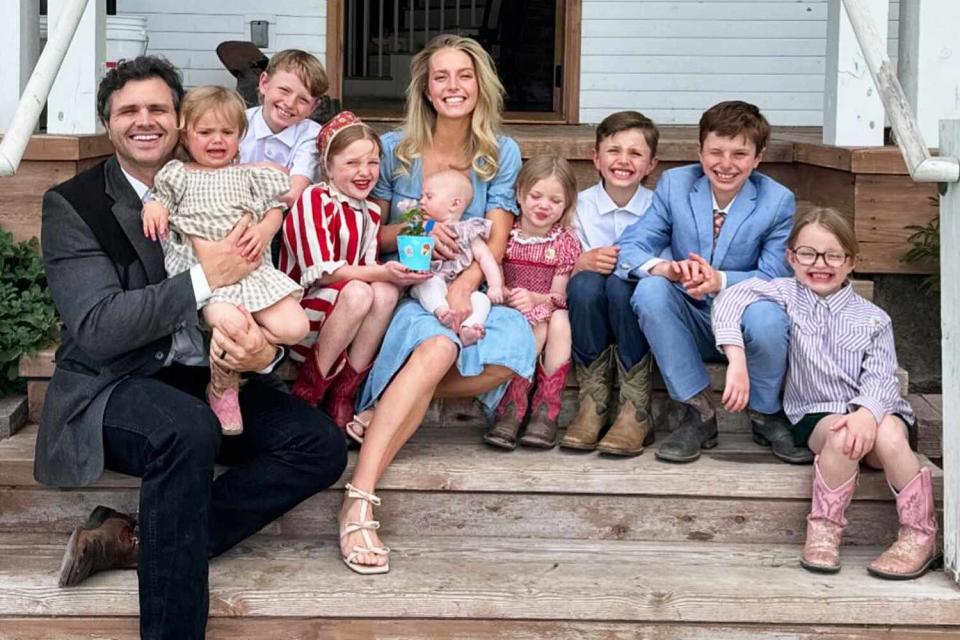
I’m an avid listener of Maintenance Phase — a podcast devoted to debunking “the junk science behind health and wellness fads.” I also love anything tangentially related to multi-level marketing schemes (MLMs) and cults, and in particular am fascinated by the crossover between the wellness/diet industry and religion.
So my curiosity was piqued when I saw the headline of Jessica Grose’s opinion piece earlier this month in the New York Times – The Unrepentant Return of Christian Diet Culture.

Grose offers her own observations on the intersection of diet culture with conservative religion and politics. After reading some of the coverage of the recent Turning Point USA Young Women’s Leadership Summit, Grose noticed the explicit references made to diet and exercise at this event, which paralleled conservative messaging she has observed on social media and news coverage of Trump’s return to office and RFK’s Make America Healthy Again plan.
From my own experience and observation, there certainly seems to be significant overlap between religion and the wellness and dieting industries. In high school, I worked for a few years at the local Christian bookstore and still remember the many books on dieting, all framed through an evangelical lens. Podcasts and docuseries like The Way Down on HBO, LuLa Rich on Amazon Prime, and The Dream podcast have also traced these links. I even think about Beth Moore getting her start in Christian aerobics, which she chronicles in her memoir published last year.

Grose picks up on one very important and ominous theme of this religious dieting rhetoric, concluding her piece with this indictment of diet culture:“Regardless of whether it’s glossed as liberal or conservative, religious or secular, keeping women occupied with controlling our bodies, rather than gaining power in ways that go beyond our physical selves, is the goal.”
Controlling women — it’s a theme I’ve been thinking about and have even written about recently for this very blog. Do these people really care about women’s well-being or is Christian diet culture simply another way for authoritarian religion and politics to control women?
I see it as one way among many that conservative religion and politics seek to subvert women and undo many of the gains made by the feminist movement over the last century.
And it’s not just because of the diet culture/wellness piece of the puzzle. In reading Grose’s thoughts, I was also reminded of some of what I’ve read and listened to about the trad wife movement. This movement has sought to make traditional, conservative gender roles more palatable by giving them a beautiful aesthetic and social media-friendly appeal.

Think beautiful women and their well-dressed families living in serene bliss on idyllic farms all while espousing the conservative politics and religion aimed at shoring up the patriarchy and restricting the rights of women. (And listen to the Culture Study podcast episode or read Anne Helen Petersen’s essay on it if you want a great introduction to the trad wife movement, its aesthetics, and its sinister goals.)
Whatever it is, conservative religion and politics share a similar goal here — using rhetoric around traditional ideas of gender and femininity, all framed as if it’s caring for the overall well-being of women, to prey on women with the ultimate goal of controlling them and removing many of their rights. A lot of this can seem mostly innocuous on the surface — again so much of the trad wife or dieting/wellness content we encounter can seem mostly about aesthetics or about encouraging women to take care of themselves.
But this rhetoric is insidious as it works to convince women to discipline and shrink their own bodies and to reshape their bodies and lives in ways that undermine their rights. As Petersen notes in her essay I reference above, “If women are the problem, the only way to solve it is to make them as passive and powerless as possible.”
I would contend, in the case of the dieting and wellness industry, the aim is to make women as small — physically, emotionally, mentally — as possible.
Header photo by i yunmai on Unsplash


5 Responses
Allison,
Thank you for this. You put words and facts to a sore spot I’ve felt for years.
Thank you for these important observations. What strikes me about the women who are prominent in Trump circles is not their body weight but that they all look like they have the same cosmetic surgeon. But that does not undercut your point. The beauty industry is a form of control.
I’m so grateful for your take on this and fear the requirement to be thin is pervasive in lots of circles – but most in the United States. I struggle between what is healthy and best for my body and what is excessive and made to make me smaller and distracted from what is important. Grateful for your work here, Allison.
Thank you, Allison! This, I think, is a conversation more people (especially men) need to have.
I wonder how economics ties into this. One can only be a trad wife if one has a husband who makes a good wage with health insurance, for example.
Thanks, again!
This is the same phenomena that conservative Christians can fall prey to–seeing everything through the lens that there are hidden satanic and communist messages everywhere. Except that instead of Satan and communists, it’s Donald Trump and White Christian Nationalists who are the boogey men, infiltrating seemingly innocuous messages like, “Maybe we could all eat healthier and lose a few pounds.”